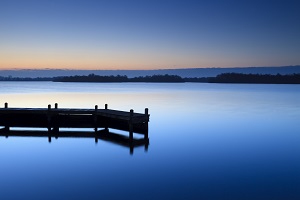The Blessing of Boundaries: How ‘Fences’ Keep the Recovering Addict Safe
As much as we are all dying for freedom and spontaneity, what we have to acknowledge is that ‘freedom’ isn’t really freedom at all. We want the option to be able to say ‘yes’ to our substance of choice whenever we want to—but what happens when we can’t say ‘no’? The ability to say ‘no’ is, too, a freedom and one that we lose when we pursue the false freedom of being able to engage in our addictive behaviors whenever we want to. There is, in fact, a trade-off. We cannot have our cake and eat it too. If you don’t have a problem with drinking, then you don’t need to worry about putting boundaries around your behavior. But if you are reading this, you are likely concerned that there may be a problem. By boundary what we actually mean is abstinence. It’s not the news you wanted to hear. You were hoping there was a way to drink and enjoy drinking like a normal person and then stop drinking when some internal trigger alerts you that you have enough. But isn’t this what you have been trying to do for months, years, or even decades?
 The 12-Step Program doesn’t set out to teach you how to live normally with alcohol, it teaches you how to live normally without it. This is the hard reality that we have to accept: we have tried to moderate our drinking and we have failed. We thought that having ‘control’ over when and how much we drank was what we wanted until we saw that we were no longer controlling alcohol—it was controlling us. It is time to give up the fight and accept that the only way to regain control of our lives is to get rid of alcohol entirely—to put a firm and unmovable fence between ourselves and drink.
The 12-Step Program doesn’t set out to teach you how to live normally with alcohol, it teaches you how to live normally without it. This is the hard reality that we have to accept: we have tried to moderate our drinking and we have failed. We thought that having ‘control’ over when and how much we drank was what we wanted until we saw that we were no longer controlling alcohol—it was controlling us. It is time to give up the fight and accept that the only way to regain control of our lives is to get rid of alcohol entirely—to put a firm and unmovable fence between ourselves and drink.
At first it seems controlling or overzealous. Are we just making too much of this whole thing? Plenty of people drink, we tell ourselves. Why do we need to be so serious about it?
So how does a boundary bring freedom? Because when you embrace sobriety, you receive your mind back. You have the power to say no. Alcohol is no longer your steamroller. And this is a freedom unlike the so-called freedom we think we had when we could drink ‘whenever we wanted.’ But there was a problem with that kind of freedom. We didn’t have the choice to not drink whenever we wanted. Alcohol was the boss. In sobriety we take our lives and our decision-making capacity out of alcohol’s hands and we reclaim it as our own.
We become free to make plans and keep them, to give our word and stick to it. We stop living in the shadows of broken promises and failed attempts and futility. When we get honest with alcohol, we get honest with ourselves and the rest of our lives and we become free.
Most of the principles of recovery contain a paradox and this concept is no different. But where has conventional wisdom or common sense ever gotten us? We have to reject the advice and the methods and the approaches that are not working for us and not serving our goal.
You have the right to be free. You have the right to be sober. You cannot imagine what that life will look like and certainly it is a little scary to think of. But what if, emotionally, you could be brought to a place of never actually needing a drink? What if life became manageable? What if you felt as good sober as you did the moment you took the first drink? Would you try it?
Watching for signs of relapse in loved ones. Read: Relapse Prevention: Signs of Relapse in Recovering Addicts



